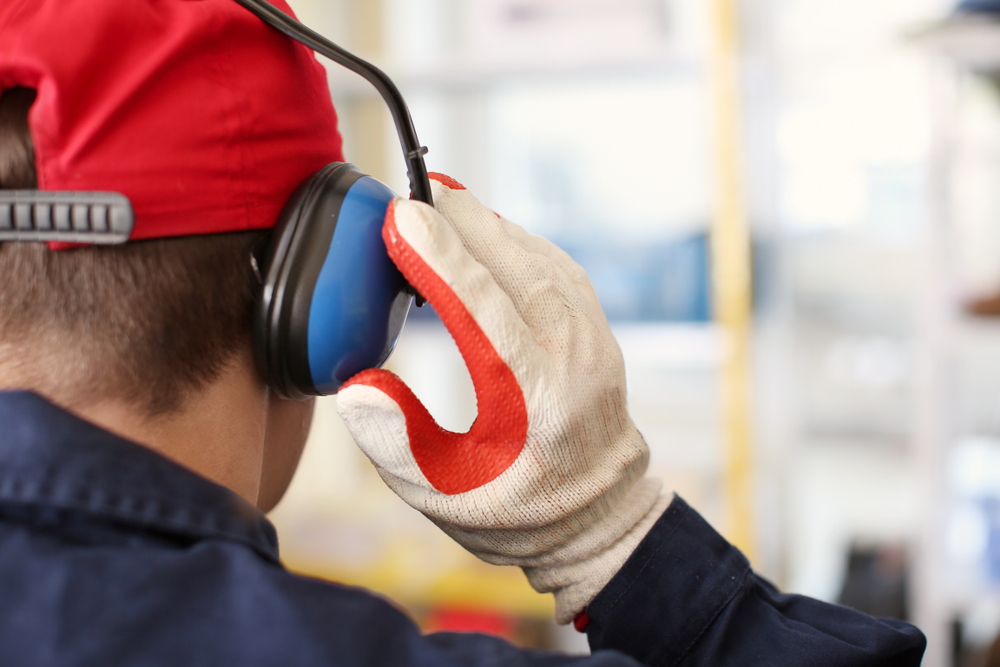The Occupational Safety and Health Administration’s (OSHA) Region 7 office in Kansas City, which includes Iowa, Kansas, Missouri, and Nebraska, has launched an inspection and enforcement program for occupational noise exposures in the Midwest. The regional emphasis program (REP) applies to federal enforcement offices in Kansas, Missouri, and Nebraska; Iowa has its own federally approved occupational safety and health program.
OSHA also has REPs for noise in all other regional offices except for its Western and Pacific regions (Regions 9 and 10).
“Hearing conservation programs are designed to protect workers’ hearing and prevent irreversible hearing loss,” Steven J. Kaplan, OSHA’s acting regional administrator, said in an agency statement.
“These programs also provide employers and workers with the knowledge and equipment to control and reduce their exposure to noise,” Kaplan continued. “Our Regional Emphasis Program has an outreach phase that encourages employers to address and correct hazards, followed by targeted inspections to ensure employers are taking necessary steps to reduce noise hazards and prevent injuries to their workers.”
Site selection for inspections under the REP will involve consulting lists of general and construction industries targeted by the program and state workers’ compensation data for noise-induced hearing loss.
OSHA compliance safety and health officers (CSHOs) will begin inspections by determining whether there are any temporary workers at a facility or site. They will also review employers’ noise exposure monitoring program, hearing conservation program, and OSHA 300 injury and illness logs for any standard threshold hearing shifts or other health hazards.
Moreover, during the facility or site walk-around, CSHOs will screen for noise hazards and conduct full-shift noise sampling.
Industry groups in the general industry site selection list include:
- Electric power generation, transmission, and distribution;
- Other food manufacturing (nut and snack food, mayonnaise and sauce, prepared food manufacturing, etc.);
- Sawmills and wood preservation;
- Other wood manufacturing (window and door, container and pallet, prefabricated wood building manufacturing, etc.);
- Petroleum and coal products manufacturing;
- Plastics product manufacturing;
- Foundries;
- Architectural and structural metals manufacturing;
- Machine shops; turned product; and screw, nut, and bolt manufacturing;
- Coating, engraving, heat treating, and allied activities;
- Other fabricated metal product manufacturing (valve, ball and roller bearing, ammunition manufacturing, etc.);
- Aerospace product and parts manufacturing;
- Miscellaneous durable goods merchant wholesalers;
- Scheduled air freight and passenger transportation; and
- Local messengers and local delivery.
Construction industry groups listed in the REP include:
- Residential building construction;
- Nonresidential building construction;
- Land subdivision;
- Highway, street, and bridge and other heavy and civil engineering construction;
- Building equipment contractors;
- Building finishing contractors; and
- Other specialty trade contractors.
The new REP cancels a 2019 REP for noise and respiratory hazards.
Workplace exposure to high levels of noise can cause permanent hearing loss that neither surgery nor a hearing aid can help correct. Short-term problems may go away within a few minutes or hours, but repeated exposures to loud noise can lead to permanent tinnitus and/or hearing loss.
Bureau of Labor Statistics (BLS) data shows that more than 1 in 10 people endure workplace noise levels loud enough to damage their hearing, but about half the nation’s workers do not use personal protective equipment to protect their hearing.

